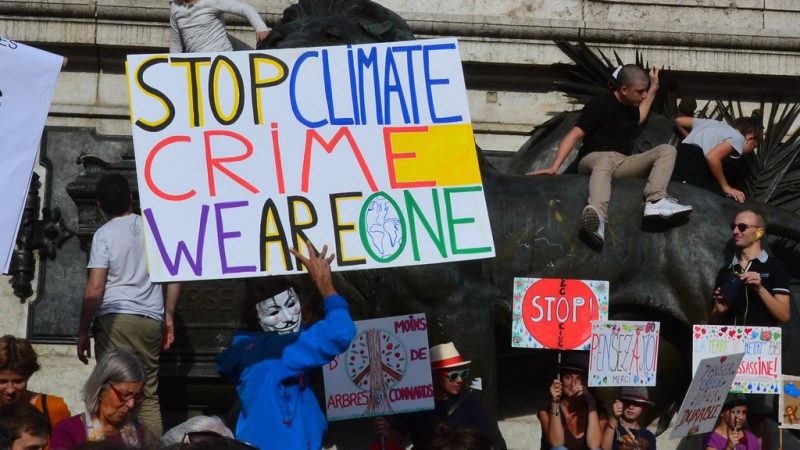'As communities transform into energy generators, they move beyond passive consumers into active democratic actors against climate change'.

Natalie Boyd Williams is a PhD student currently researching community renewable energy in the UK
Community renewable energy (CRE) as defined by Community Energy England (CEE) as ‘the delivery of community-led renewable energy, energy demand reduction and energy supply projects, whether wholly owned and/or controlled by communities or through partnership with commercial or public sector partners’.
CRE puts communities at the heart of renewable energy (RE) action, positioning them as partners in transitions to a net-zero carbon future. As communities transform into energy generators, they move beyond passive consumers into active democratic actors against climate change. There is evidence that engaging and involving communities in RE projects increases acceptance of the projects and speeds up RE transitions.
As well as directing economic benefits back into communities, CRE projects can help communities develop resilience, energy awareness, capability, counter loneliness and feelings of hopelessness in the face of climate change. CRE recognises that to achieve net-zero we need social as well as technical change.
CRE has been supported by many European countries over the last decades including the UK who in 2010, introduced policies such as the Feed in Tariff (FIT) and the Renewable Heating Incentive (RHI) aimed at incentivising CRE growth by providing guaranteed rates of payback for surplus energy generated and sold to the grid. These policies are necessary in facilitating transitions to RE technologies.
Successful CRE projects with diverse community-ownership models can be found across the whole of the UK. The island community of Gigha in Scotland have full ownership of their wind turbines and the profits they make from selling electricity to the grid are spent on island regeneration through projects such housing renovations, developing local facilities and promoting economic activity.
The Bristol Energy Cooperative allows people to invest and become shareholders in local energy projects. Communities for Renewables which supports CRE projects UK wide, showcased the diverse benefits of CRE projects. They used profits from community-owned solar farms and mobilised a Corona Crisis Fund. The funds were allocated to where they were urgently needed, ahead of government action, including to young carers.
However, in 2019 the UK Governmentremoved the FIT against consultation along with other CRE development funds and Social Investment Tax Reliefs (SITR) which resulted in a huge reduction in new CRE projects. The government removed the FIT as they didn’t want to create subsidy dependency, despite their commitment to subsidising and spending on commercial fossil fuel and RE subsidies, oh and nuclear weapons. Their statement concludes that they do not believe that FITs create market-competition and innovation, overlooking the importance of social innovation.
The FIT has been replaced with the Smart Export Guarantee (SEG) which means that UK energy suppliers must purchase electricity off local suppliers. However, they are under no obligation to pay a minimum price and the short-term contracts makes investment in small scale renewable energy much riskier than it once was.
The Local Electricity Bill proposed that local energy generators would be able to sell electricity directly to consumers, by-passing the grid and energy utility companies. However, it just failed to make it through parliament in 2021. This decision restricts the power that local energy projects have to legitimately develop.
The government claims their decisions have the UK economy and consumers at heart, but it is hard to believe them when the policies are maintaining neo-liberal agendas and concentrating the profits to a few. In fact, many of the UK’s main energy suppliers are foreign owned where profits are not directed into UK growth. Instead of seeing the struggles of CRE and working to strengthen and support it, the government are making it harder to grow.
Community Energy England, among other groups, are asking for better policy support for CRE. They want a Smart Export Guarantee with a long-term minimum guaranteed tariff, re-reinstatement of SITR, and support of the Local Electricity Bill. This would mean CRE would have a chance to work alongside commercial operators in a ‘high-risk, low-margin field whilst also delivering social benefit’.
CRE can play a key part in the transition to a net-zero carbon future. The public can get involved by speaking to local MPs and lobbying the government for greater support for CRE as well as getting involved with their local CRE group and supporting their vital work.
More information can be found on CEE website as well as the Community energy Scotland and Wales.
To reach hundreds of thousands of new readers we need to grow our donor base substantially.
That's why in 2024, we are seeking to generate 150 additional regular donors to support Left Foot Forward's work.
We still need another 117 people to donate to hit the target. You can help. Donate today.



